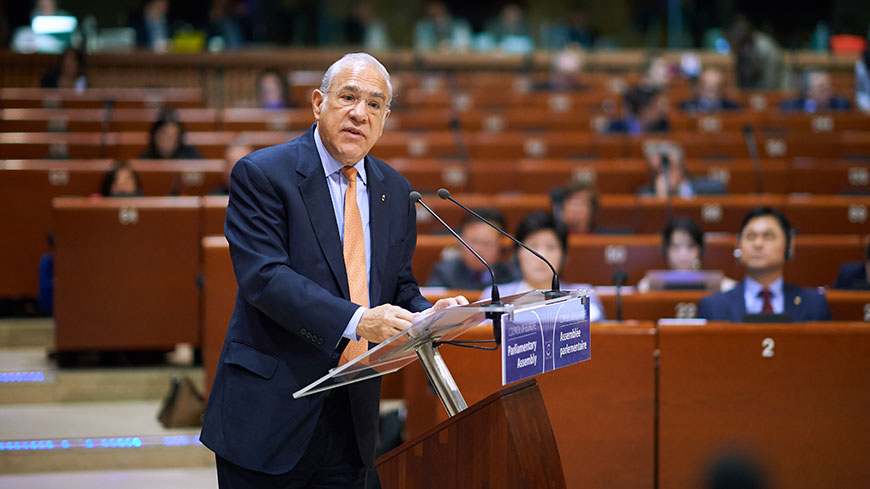“There are some welcome signs that our economies may finally be escaping the low growth trap. The OECD projects global growth to increase to around 3.5 per cent in 2017 and 3.7 per cent in 2018, up from 3 per cent in 2016. But we are not out of the woods yet,” said OECD Secretary General Ángel Gurría, addressing the Assembly on Tuesday.
“Trade and business investment may be increasing, but not fast enough. Global trade growth is projected to average around 4 per cent per annum through 2017-18, which is modest by pre-crisis standards. Employment rates are improving, but wages aren’t picking up. And what is also worrying about this outlook is that many people are being left behind,” he said.
Addressing PACE as part of its annual debate on the activities of the OECD, Mr Gurría underlined that “numbers show that people have a reason to be angry”. The richest 10 per cent of the population in OECD countries now earn, on average, almost 10 times more than the poorest 10 per cent. A generation ago, it was 7 times more. “Inequalities go well beyond money. They exist in education, skills, health, employment, and also between generations. We need a more integrated approach in which the low income groups are better prepared to profit from the global system. We need a more inclusive growth model,” he said.
See also:
Call on OECD member states to revive public investment


